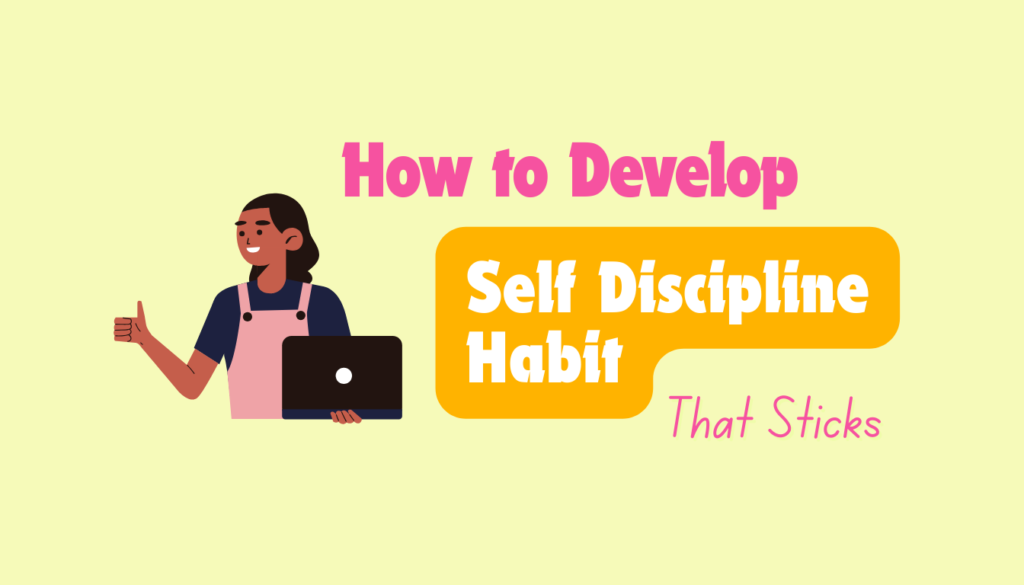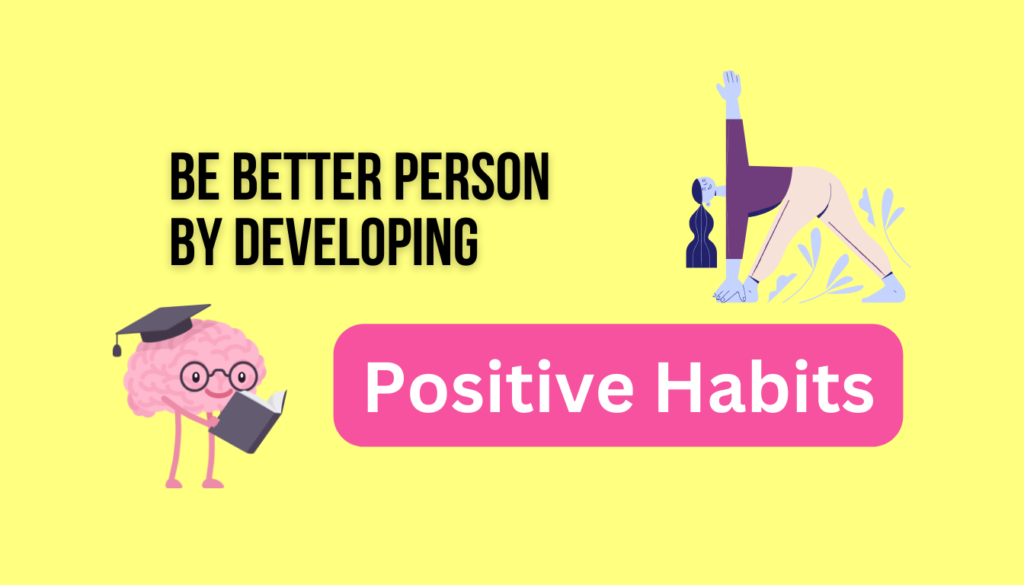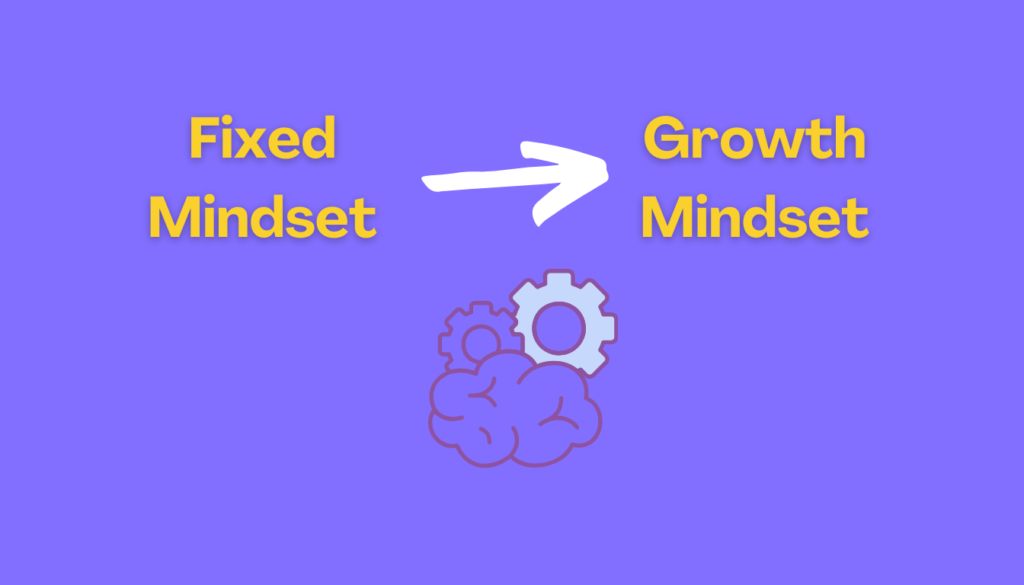Have you ever seen people who seem to easily keep healthy habits and achieve goals?
They do this by using self-discipline. Self-discipline is a powerful tool that can change your life. But, exactly how do you get better at it?
This guide will show you proven methods to build a lasting self-discipline habit.1
Self-discipline is a critical skill for life success. It acts like a superpower. With it, you can change many aspects of your life.
You could improve your health, run marathons, or start a blog. Without self-discipline, you might face health problems, distractions, and financial issues.
This guide is here to kickstart your journey to develop a strong self-discipline habit that will stick.2 3
Understanding the Importance of Self-Discipline
Self-discipline is key for being happy, successful, and growing as a person.
Studies prove that folks with self-discipline are happier. This is because they achieve more of their important goals.2
Self-discipline acts like a bridge from setting goals to reaching them. Those with more self-control spend less time deciding if they should do things. These things may not help them reach their dreams.2
They are more firm in their decisions. They don’t act on sudden wishes or feelings. They enjoy their life more.2
Learning self-discipline is a must for going beyond what’s easy. This leads to getting remarkable results.
Being disciplined helps with health, stops you from putting things off, handles money better, keeps your space organized, and avoids feeling stressed.1
The article shows why self-discipline is crucial for making progress in life. It shares stories of achievements like starting a blog or running marathons. These accomplishments came from having self-discipline.1
By working on self-discipline, we unleash our true power. We achieve amazing things. This is the first step to having willpower and being successful.
Also, it helps in creating good habits. Getting better at self-discipline changes how we grow and find happiness.
Finding Motivation for Developing Self-Discipline
The first step in getting self-discipline is knowing what drives you. We can start by seeing how our actions cause us pain.
This realization makes us want to change to stop that hurt. Thinking about how getting better will help those we love is also a big motivator.1
This includes doing well in health activities or not putting things off. Loving the life we have and being active in our choices is another way to get fired up.1
These strong reasons help us keep going even through tough times.
Research proves that those who are self-disciplined are happier.2 They make quicker decisions about things that might not match their goals.
Self-discipline also helps in setting tasks and deadlines that are… doable.4 Getting better at self-discipline affects many parts of life.
It can improve exercise, eating well, and even your money management.1 Not being disciplined can lead to health problems, mess, and feeling overwhelmed.1
Breaking things into small steps really helps with self-discipline.1 It’s easier to start when tasks seem doable, not big and scary.
Learning to handle tough situations little by little can also boost self-discipline.1 When we focus on how we’re making life better for others, the task seems lighter.1
Seeing failure as a chance to grow is a must. Instead of being held back, it can push us forward.1 Having support from those around us, either friends or online, is also crucial.1
They can cheer us on and help keep us motivated.
How to Develop Self Discipline Habit
To build sustainable self-discipline, start with small, consistent actions. Rather than facing big projects, pick tasks you can’t refuse.
Try doing 5 minutes of taxes, a 10-minute run, or writing a bit of a report. Decluttering 5 things also works.1 This makes tackling large goals easier by breaking them into small, manageable steps.1
It’s key to step into discomfort slowly instead of avoiding it.1 Practicing mindfulness helps. Be aware of when you want to procrastinate or get distracted.
Choose to keep working on the task. This grows your ability to stay disciplined.1 Having dedicated work time aids in this mindfulness strategy too.1
Using these methods of small action steps, overcoming discomfort, and mindfulness leads to a sustainable self-discipline habit. This habit supports both personal and professional goals.1 2
Interval Training for Self-Discipline
We can boost our self-discipline by combining small steps with working through hard times mindfully.1
You set a 10-15 minute timer to focus completely on a task. It could be writing, working out, or meditating.
After the timer ends, take a 5-minute break before starting over. This method trains our mind to stay on task, say no to distractions, and handle tough situations better.1
Short intervals, even just 10 minutes, are great for building self-discipline.1
As Raymond Chandler suggests, a writing routine of writing and doing nothing else highlights the strength of focused time.1
This idea works beyond writing. By using techniques in time management and focusing on being more productive, we can improve our discipline.1
Pushing ourselves a bit out of our comfort zone in short bursts helps too.1 Even when we fail, we see it as a chance to get better.1
Getting help from family, friends, or online groups is important in growing discipline. It encourages us to be open and builds a solid support system.1
By blending interval training, being mindful, and leaning on others, we can really sharpen our interval training for self-discipline, time management techniques, and focus and productivity skills.
These skills will move us closer to our dreams.
Developing a Positive Mindset
What you think about willpower and self-discipline matters a lot. Believing that your willpower is limited can make it hard to keep going when things get tough.5
But, thinking your willpower is endless can really push you to try harder.6 Remembering that you can always get better at self-discipline keeps you going, even when it’s hard.5
Staying positive and truly believing you can reach your goals makes self-discipline something you can do every day.6
Having a positive mindset means you’re hopeful and see the good in things. This includes being optimistic, accepting things as they are, and tackling problems with a smile.5
It’s important to stay positive because it helps with being hopeful and strong, and makes life better overall.5
Positive thinking is also key. It means looking at tough times in life as chances to grow and learn. This way of thinking brings a lot of good things.5
Barbara Fredrickson thinks we should balance bad thoughts with good ones. While thinking negatively can help us survive, thinking positively makes our world bigger and more open.5
We can get better at being hopeful by changing how we see things. The ABC model by Albert Ellis and Martin Seligman is one way. It helps change our thoughts so they can be more positive.5
If we believe we can keep getting better, we will. This goes for making self-discipline a part of our daily lives too.6
With a growth mindset, we can achieve great things. Believing we can always learn and grow keeps us going even when it’s hard.6
Building a Support System
Self-discipline doesn’t have to be just you against the world. Talking to family, friends, or joining online groups for accountability partners and social support really helps.7
Some folks feel embarrassed to ask for help because they’re not very disciplined. But opening up and talking with others can make you stronger.7
Sharing your goals and struggles lets them back you up, keeping you motivated and offering tips that work for them.7
This support system will be like your personal cheer squad, helping you when the going gets tough.
Creating Habits and Rituals
Self-discipline is something we can learn. It needs daily effort to get good at it.8 By sticking to a steady daily schedule that mixes work, play, and rest, we teach our mind to stay in line.8
Start by mastering one new habit, like hitting the hay early or working out briefly.8 Add more routines slowly as you succeed.
Having a clear goal and a motto can keep motivation high and make discipline stick around.
Charles Duhigg in The Power of Habit explains that habits follow steps: Cue > Craving > Routine > Reward.9
Getting rid of bad habits and starting good ones needs self-reflection.9 Changing habits takes trying new things, time, and sometimes it’s hard.10
But, trying out new rhythms with fun and creativity is the way to go, according to one writer.
A habit is something we do without really thinking, the writer notes.10 These habits make our day-to-day routines, which then form our life’s beat.10
Being patient as you work on new rhythms and being ready to adjust them is key. Sometimes, trying different things is what works best, the writer believes.
Practicing Self-Care and Celebration
Building self-discipline means taking care of our bodies and minds. This includes working out often, eating well, and sleeping enough11.
These actions help us feel more energetic, focused, and motivated to achieve our dreams.12
Self-love and discipline play a vital role in looking after both our mental and physical health. They help us put our health first.12
It’s key to celebrate our victories, no matter their size.11
Recognizing our successes, even small ones, can boost our confidence and motivation11. It makes us feel good about ourselves and pushes us to keep moving forward12.
Both self-love and discipline are powerful in supporting our mental well-being, according to experts12.
Taking time off and doing fun things can rejuvenate our minds and prevent stress.11 These breaks also improve creativity and productivity11.
By adding self-care and celebration to our discipline, we keep a healthy attitude. This approach brings several benefits like more confidence, stronger health, and peace of mind12.
Forgiveness is essential for our own healing and well-being, experts say12. It’s important to learn from our mistakes for personal growth12.
By practicing discipline daily, we develop good habits that lead to a better life12. Setting logical goals and sticking to effective routines are critical for staying disciplined and living well12.
Conclusion
Developing self-discipline that lasts takes different steps.11
It’s about knowing why self-discipline matters, finding what drives you, and using methods like mixing work with breaks, changing your state of mind, teaming up with others, and taking care of yourself.
These steps help turn self-discipline from a hard job into a useful ability for reaching our dreams.13
Understanding self-discipline is not the same as always being perfect. It’s more about moving forward no matter what happens.11
Each step we take and these principles we follow help us grow and do amazing things. Starting with small changes, being patient, and never giving up is key. Doing this, your future self will be grateful.
To wrap it up, getting good at self-discipline involves seeing its value, looking for what inspires you, and using various strategies.
These include mixing work with breaks, changing your mindset, teaming up with others, and self-care.11 13
By committing to this journey, we can make self-discipline a strong tool for achieving what we want in life and work.14
Source Links
- https://zenhabits.net/self-discipline/
- https://www.forbes.com/sites/brentgleeson/2020/08/25/8-powerful-ways-to-cultivate-extreme-self-discipline/
- https://dariusforoux.com/self-discipline/
- https://www.calm.com/blog/how-to-become-more-disciplined
- https://positivepsychology.com/positive-mindset/
- https://sampreetiatta.medium.com/9-simple-habits-for-developing-a-positive-mindset-and-overcoming-negativity-8fd1b5e609a2
- https://clevermemo.com/blog/en/how-to-develop-self-discipline/
- https://www.thebehaviorhub.com/blog/2020/7/22/creating-rituals-routines-and-habits-the-how-to-of-preventative-self-care
- https://iulianionescu.com/blog/better-habits-and-rituals/
- https://shawnfink.com/you-dont-need-self-discipline-you-need-rhythms-routines-habits/
- https://www.linkedin.com/pulse/10-simple-habits-build-strong-self-discipline-raymond-merritt
- https://medium.com/@sandariusthomas/discipline-as-a-form-of-self-care-a-guide-to-building-healthy-habits-15e842c8e63d
- https://www.linkedin.com/pulse/from-dreamer-achiever-self-discipline-roadmap-williams-ed-d
- https://naturallybalanced.org/en/self-discipline/





